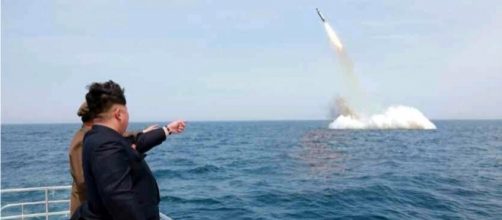North Korea has committed their first provocation since the administration change in the United States. According to the South Korean Ministry of Defense, North Korea fire-tested a ballistic missile early Sunday morning. The test may have been the first step in proving the weaponry capabilities of the country, as well as a test to see what the United States' response would be to these provocations.
The test
The test by North Korea occurred early Sunday morning, with a launch reportedly taking place from North Pyongan Province. The missile traveled 310 miles before coming to rest in the Sea of Japan.
The missile appeared to have the capabilities of traveling to an intermediate range.
Under resolutions passed by the United Nations Security Council, North Korea is prohibited from testing ballistic missiles or carrying out missile launches. By all accounts, Sunday morning's test would be a clear violation of the resolutions. The unstable nation has not shown any level of care about sanctions in the past, though, so it likely came as little surprise that they would continue testing their weapon capabilities.
Seeing how the world reacts
When questioned about the missile launch by reporters, Donald Trump refused to comment, likely to gather more facts about the incident. During the challenges he has faced during his brief tenure as president, Trump has reacted with aggressive blusters and insults; he'll likely react in the same manner when it comes time to condemn North Korea.
There's no doubt, however, that North Korea is becoming an increasingly legitimate threat on their path to becoming a nuclear nation with an erratic and unpredictable leader. Sunday morning's test was a significant step toward creating an intercontinental ballistic missile, one that could be launched toward South Korea or even the United States. Sanctions don't seem to have much effect, so seeing how the world reacts to this latest provocation will speak volumes about the nation's potential future in regard to nuclear weapons.

